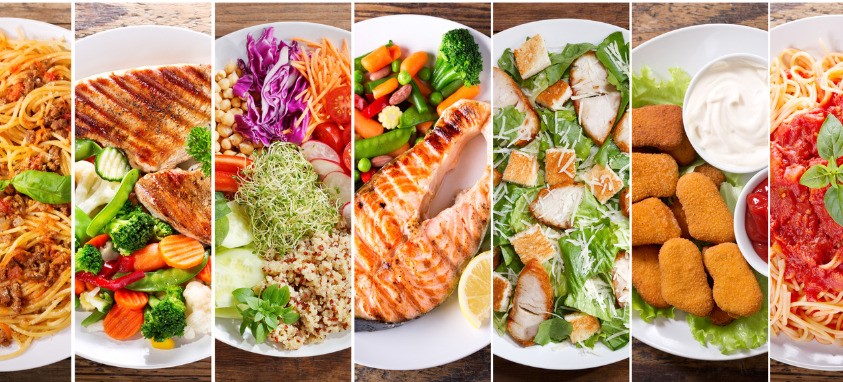Planning a menu for an event can be a hassle, especially in our gluten-free, keto and vegan world. Whether an attendee has a food allergy, is health conscious or stands firmly by their personal or religious beliefs on how food should be prepared, creating a menu that accommodates everyone can be a headache.
Luckily, most venues are pretty accommodating to dietary restrictions. They just need to know ahead of time.
Start from the Beginning
One way to know if attendees have dietary restrictions is to do your research at the beginning. The best time to do this is when an attendee first registers for your event. Adding a section that asks if they have dietary restrictions, needs or allergies will help eliminate issues and confusion down the line for both you and your attendees. Keep questions clear, short and to the point.
Related: 6 Tips to Get the Most Out of Post-Event Surveys
Be as Accommodating as Possible
You want attendees to feel welcome, but if they can’t enjoy their meal, they may not feel so. A good experience usually results in guests sharing with their friends and colleagues. The same goes for a negative experience, so be as accommodating as possible—even if an attendee gives you their request or preference last minute.
Know What Types of Restrictions you Might you Face
- Gluten and Wheat Free: The Gluten-free diet is fairly common. People with this restriction avoid foods that contain gluten, which is a general name for the proteins found in wheat. It is most often found in bread products but is also found hiding in many other products like: soy sauce, salad dressings, cereals and even oats (in some cases).
- A Wheat-free diet is similar to gluten-free but has its own specifications. In a wheat-free diet, a person cannot have any wheat or wheat by-products. The difference between gluten and wheat free is that it’s possible for someone who avoids wheat to eat foods containing gluten, but it is not possible for someone who avoids gluten to eat wheat. This is because all wheat products have gluten. Many menus avoid gluten and wheat all together to make choosing easier.
- Lactose Intolerance: Lactose is the sugar found in milk and dairy products. Some attendees may be lactose intolerant, meaning they aren’t able to digest lactose. While there is no extreme danger to those who consume the sugar if they are intolerant to it, they will most likely experience an upset stomach and some discomfort.
- Pescatarian: The pescatarian diet doesn’t include any meat except for fish. This shouldn’t pose much of an issue since most event menus have seafood options.
- Vegetarian: There are three variations of the vegetarian diet: Lacto-ovo-vegetarian, Lacto-vegetarian and Ovo-vegetarian. Lacto-ovo-vegetarians eat both eggs and dairy products, Lacto-vegetarians eat dairy products but avoid eggs and Ovo-vegetarians eat eggs but avoid dairy products.
- Vegan: More people are becoming vegan now than ever before, with a 600 percent increase in the U.S. in the last three years, according to GlobalData. People on this diet avoid any food that comes from an animal. This includes; butter, eggs, milk and cheese. Some vegan dieters also avoid foods that are processed using animal products like refined white sugar and certain wines.
- Ketogenic: The ketogenic diet (keto for short) is a low-carb, high-fat diet. People on the keto diet reduce their carbohydrate intake and replace it with fat, putting their body into ketosis, a metabolic state where the body burns fat for energy. Foods to avoid or reduce on this diet include: sugary foods; grains or starches; all fruit except for a small portion of berries; beans and legumes; root vegetables; low-fat or diet products; condiments or sauces that contain sugar and unhealthy fat, such as mayonnaise; alcohol and sugar-free foods.
- Paleo: The Paleo diet consists of foods that early humans are presumed to have eaten, such as meat, fish, vegetables and fruit. Processed foods, grains and dairy products are excluded from this diet. Paleo dieters do not find it difficult to find something on to eat on most menus. So, if your meeting or event’s meat and vegetable choices are clean and not smothered in butter, cheese or sauces you should be good to go.
- Nut-free/allergies: Nut allergies can be very serious. Even if only one person at your event is allergic to nuts, you might want to consider keeping them off the menu entirely. Consider asking attendees to refrain from eating nut-based foods to protect those who are allergic.
- Diabetic: Those who are diabetic have a medical condition in which they cannot produce insulin and must monitor their blood sugar levels. Providing healthier beverage options, limiting the number of starchy menu options—such as potatoes and rice, and providing alternative desert choices are easy ways to accommodate diabetic attendees’ needs.
- Other allergies or restrictions: Some attendees’ dietary restrictions may be rooted in religion. For example, those of the Islamic faith eat only Halal meat which is prepared and blessed in a specific way. They do not eat meat derived from pigs and during Ramadan, they fast from sunrise to sunset. Those who practice Judaism eat Kosher foods—meaning meat must be prepared a certain way and cannot contain shellfish or pork. Attendees who eat Kosher foods will also not eat dairy and meat at the same time.
Finally, there are many types of food that attendees could be allergic to, so be sure to ask about their needs and never make assumptions.




